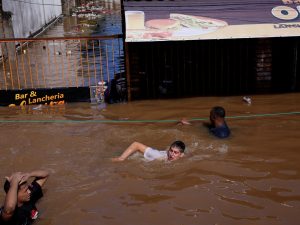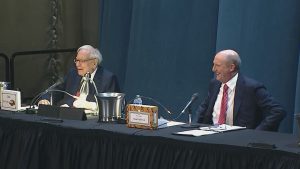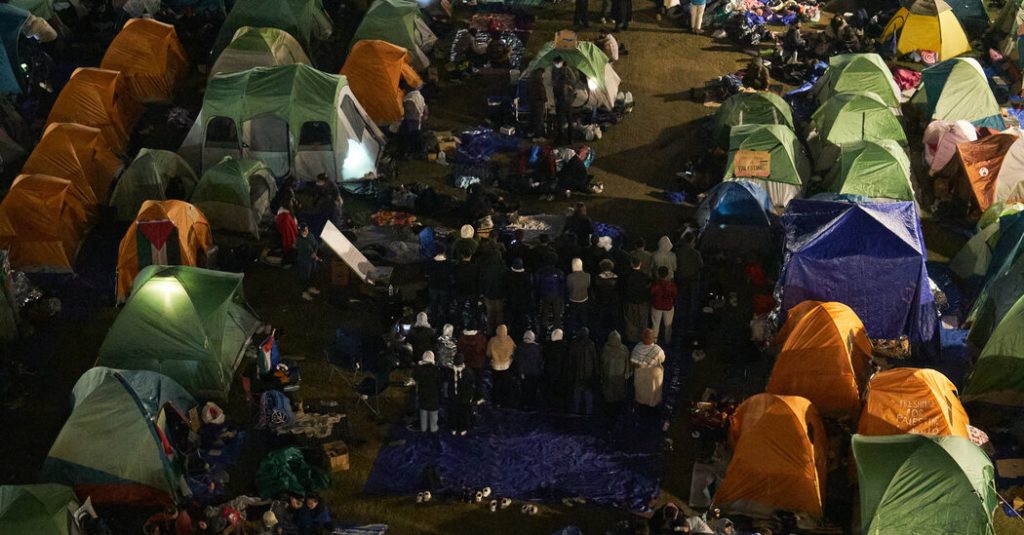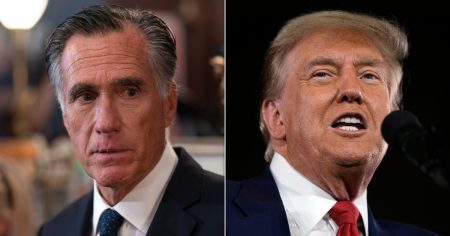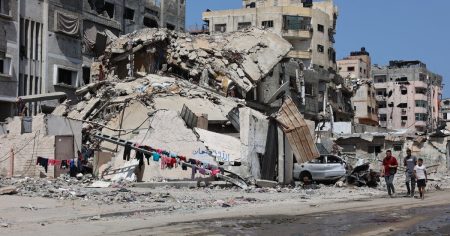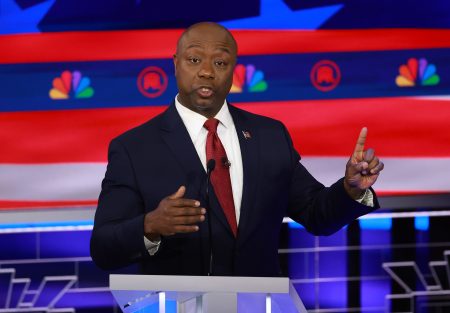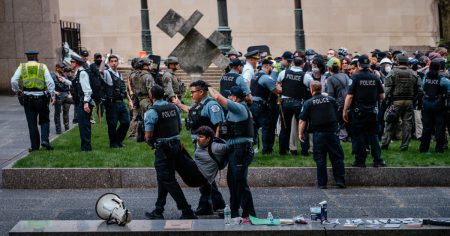Columbia University has set a midnight deadline for student protesters to disband their encampment, threatening to send in New York City police to clear the grounds and make arrests. The university’s president, Nemat Shafik, stated that administrators were in talks with student organizers to try and reach an agreement before the deadline. This comes after Dr. Shafik enlisted city police in riot gear to arrest more than 100 activists a week prior who had refused to leave the tent village protesting Israel’s war in Gaza, sparking criticism from all sides.
The encampment reappeared larger than before after being cleared, prompting Dr. Shafik to consider alternative options for clearing the lawn. As protesters and onlookers gathered outside the campus gates, chants about the midnight deadline rose up. On campus, around 100 people stood around talking inside the encampment, with the overall scene remaining calm despite the impending deadline.
Demonstrations protesting the war in Gaza have been ongoing for months on college campuses across the country, including Yale, New York University, Tufts, Emerson, and University of California, Berkeley. The unrest has escalated in the final weeks of classes, with police being called in to make arrests at Yale and NYU. Administrators are facing challenges in balancing students’ free speech rights with the need to protect Jewish students, as some protests have included hate speech, threats, or support for Hamas.
At Columbia, some faculty members have circulated a draft resolution to censure the president over what they perceive as an unprecedented assault on student rights. Additionally, a major Jewish donor has cut off support for the university, claiming that it is not doing enough to protect students. The situation at Columbia reflects a broader struggle faced by academic institutions in managing protests and creating a safe and inclusive environment for all students.
The tensions at Columbia highlight the complexities of addressing contentious issues on college campuses, such as the Israeli-Palestinian conflict. The protests have brought to the fore questions surrounding free speech, student activism, and institutional responses to controversial demonstrations. As the midnight deadline approaches, the fate of the encampment and the potential involvement of New York City police remain uncertain, raising concerns about the impact on campus climate and student engagement in activism.
Ultimately, the situation at Columbia serves as a microcosm of the broader challenges facing universities in navigating political and social conflicts among students. The protests at Columbia and other campuses underscore the importance of fostering respectful dialogue, protecting academic freedom, and ensuring the safety of all students. The outcome of the standoff between protesters and university administrators will have implications for the future of campus activism, free speech rights, and the relationship between academic institutions and their communities.
